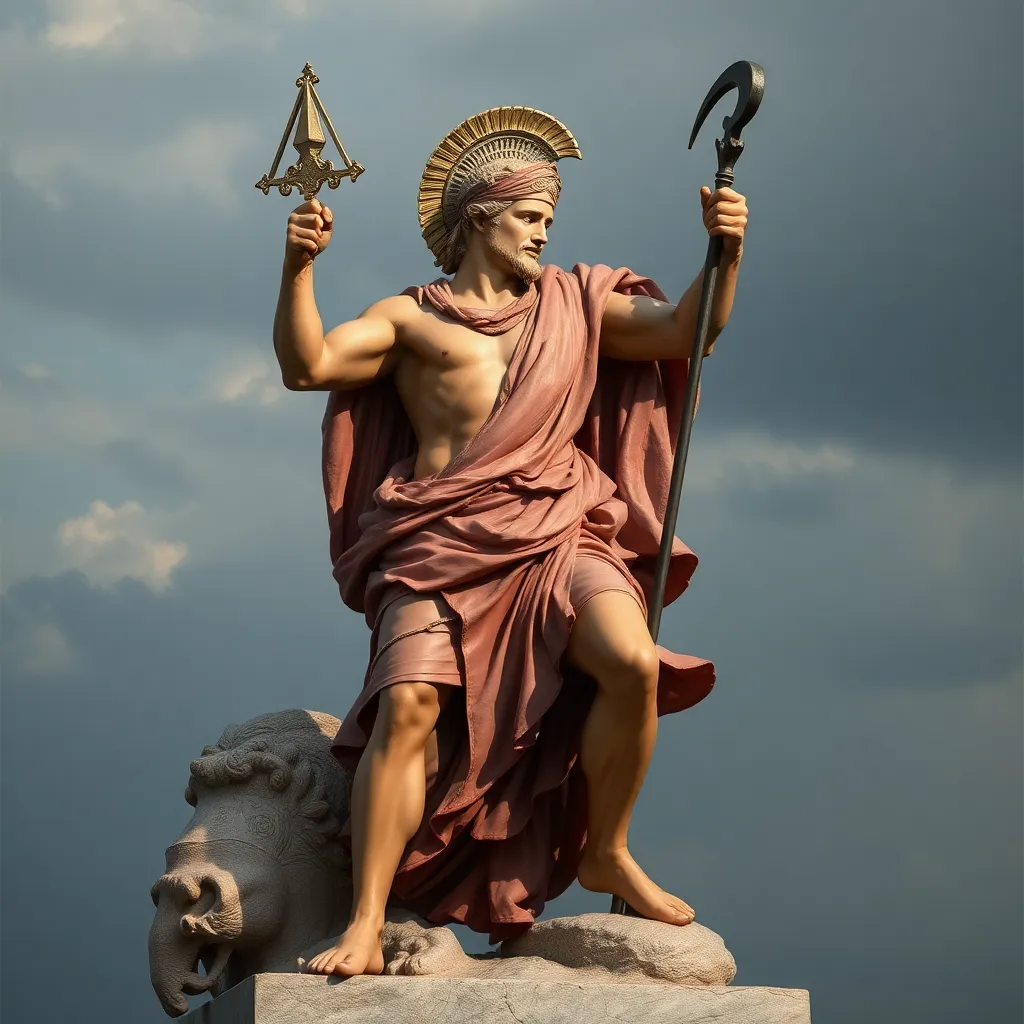The Influence of Perseus on Modern Interpretations of Heroism
I. Introduction
Heroism has been a subject of fascination from ancient times to the modern day, evolving in its definition and representation. In ancient contexts, a hero was often characterized by their extraordinary feats, divine favor, and moral fortitude. Today, while some of these traits remain relevant, modern interpretations of heroism also encompass emotional resilience, social justice, and vulnerability.
Among the pantheon of Greek mythology, Perseus stands out as a quintessential hero. A demigod, the son of Zeus and Danaë, his tales of bravery and cunning have captivated audiences for centuries. This article aims to explore Perseus’s impact on contemporary views of heroism, examining how his traits and adventures resonate with modern audiences.
II. The Myth of Perseus: A Brief Overview
The myth of Perseus is rich with adventure and dramatic encounters. Key events in his narrative include:
- His quest to slay Medusa, the Gorgon whose gaze could turn men to stone.
- The rescue of Andromeda, a princess sacrificed to a sea monster.
- His eventual return to claim his rightful place, fulfilling his destiny.
Perseus is defined by several heroic characteristics, including bravery, resourcefulness, and a sense of justice. His story is also marked by divine intervention, with assistance from gods such as Athena and Hermes, highlighting the interplay of fate and free will in his journey.
III. Archetypal Heroism in Perseus’s Tale
Perseus’s narrative aligns closely with the hero’s journey framework as articulated by Joseph Campbell. His story encompasses several stages:
- Call to adventure: Receiving the quest to slay Medusa.
- Mentorship: Guidance from Athena and Hermes.
- Trials: Confrontations with monsters and challenges.
- Transformation: Growth from a young man to a legendary hero.
As an archetype, Perseus embodies traits such as bravery, resourcefulness, and moral integrity. These qualities allow for a comparison with other mythological heroes like Hercules, known for his strength, and Achilles, renowned for his prowess in battle. However, Perseus’s cleverness and strategic thinking often set him apart as a more cerebral hero.
IV. Perseus in Literature and Art
Throughout history, Perseus has been a prominent figure in classical literature. Notable representations can be found in:
- Ovid’s “Metamorphoses,” where his adventures are vividly recounted.
- Apollodorus’s “Library,” which provides detailed accounts of his lineage and exploits.
Artistic depictions of Perseus have also evolved. From ancient pottery and sculptures to Renaissance paintings, he has been portrayed as both a heroic figure and a symbol of triumph over evil. In modern culture, his image has transformed further, often being reimagined in films, literature, and video games.
V. Modern Interpretations of Heroism
In contemporary society, the understanding of heroism has shifted significantly. Traditional notions of the hero as a solitary figure conquering evil have expanded to include characteristics such as:
- Resilience in the face of adversity.
- A commitment to justice and equity.
- Emotional intelligence and vulnerability.
Perseus’s traits resonate with these modern values, particularly his resilience and commitment to justice, as seen in his quest to free Andromeda. Additionally, the impact of technology and media has transformed the portrayal of heroism, often highlighting collaborative efforts rather than individual triumphs.
VI. The Legacy of Perseus in Film and Literature
Perseus’s myth continues to inspire modern storytelling, evident in films and books that draw from his narrative. Notable examples include:
- “Clash of the Titans,” where Perseus battles mythological creatures to save humanity.
- Various adaptations in animated films and graphic novels that reimagine his journey.
Furthermore, the influence of Perseus can be seen in the development of superhero narratives. Characters such as Superman and Thor share attributes with Perseus, showcasing strength, bravery, and a commitment to protect the innocent. These modern heroes often reflect the same ideals that Perseus embodied in his mythological adventures.
VII. Critiques and Counter-Narratives
While Perseus is often celebrated as a hero, feminist interpretations have critiqued his actions, particularly regarding the fate of Medusa and Andromeda. Such critiques highlight the complexities of heroism and question the moral ambiguities of Perseus’s choices:
- Medusa, once a victim, becomes a monster, raising issues of agency and victimhood.
- Andromeda’s sacrifice reflects the treatment of women in ancient myths.
Moreover, alternative heroes in mythology challenge the archetype of Perseus. Figures like Artemis or Athena represent different forms of strength and heroism, emphasizing wisdom, strategy, and feminine power.
VIII. Conclusion
Perseus’s enduring influence on the concept of heroism is evident through his representation in literature, art, and modern media. His traits of bravery, resourcefulness, and moral integrity continue to resonate with contemporary ideals of heroism, even as society’s understanding of what it means to be a hero evolves.
As we reflect on the relevance of ancient myths, it is clear that they shape and inform modern ideals, offering insights into the complexities of heroism and the human experience. The legacy of Perseus serves as a reminder of the multifaceted nature of heroes, inspiring generations to embrace both their strengths and vulnerabilities in the face of challenges.




